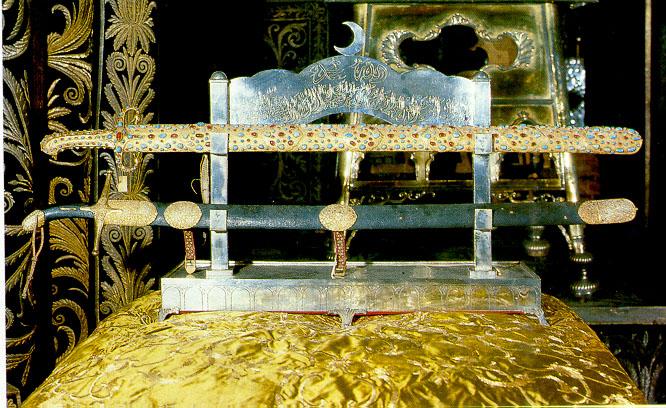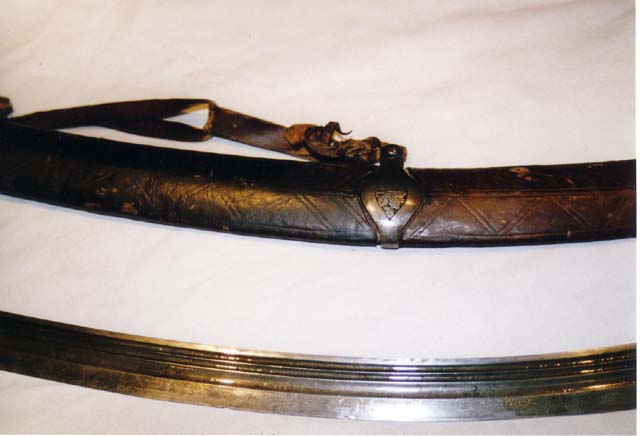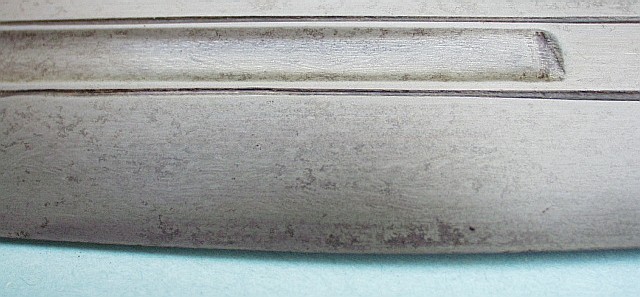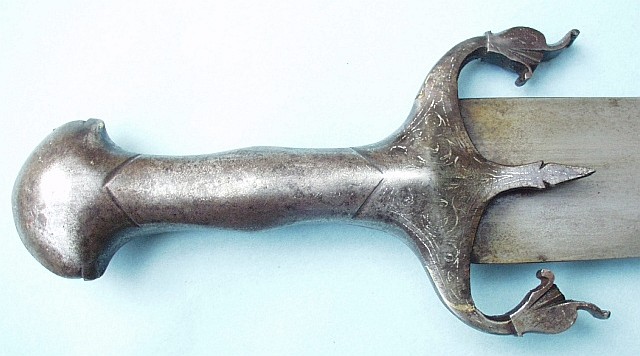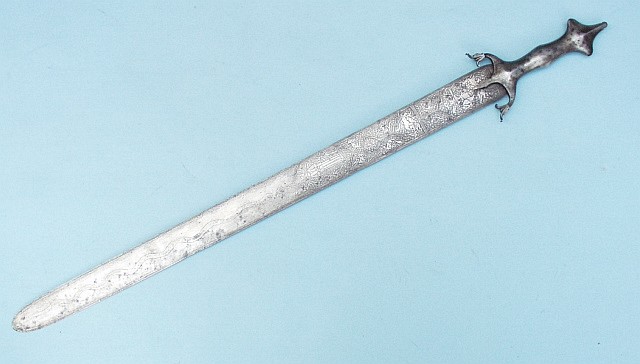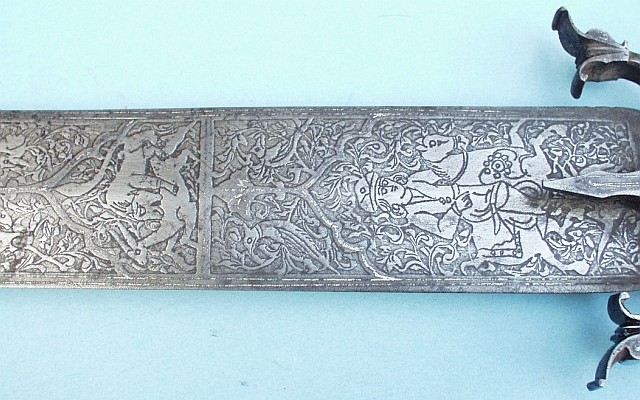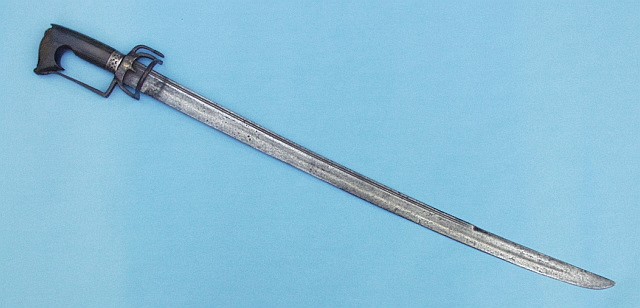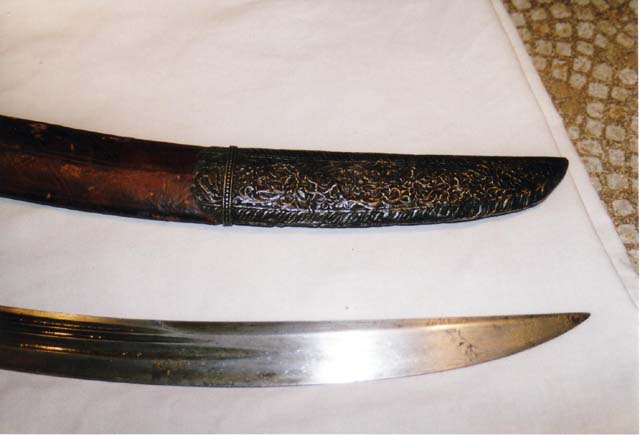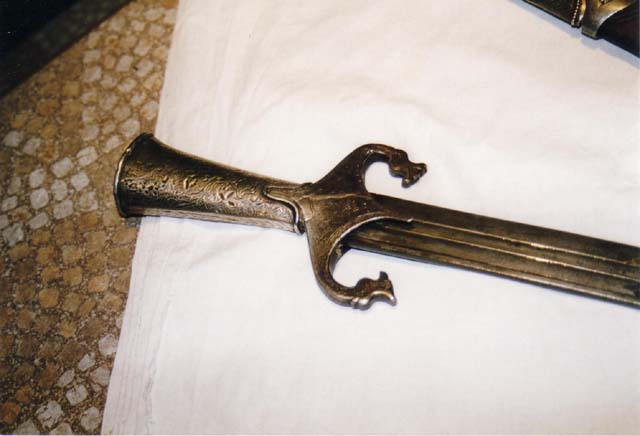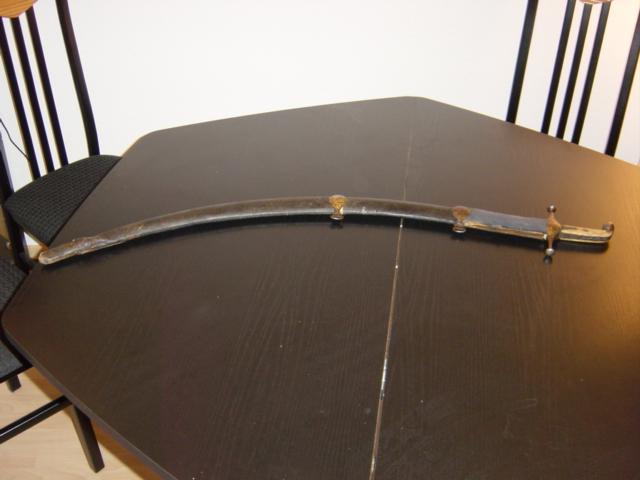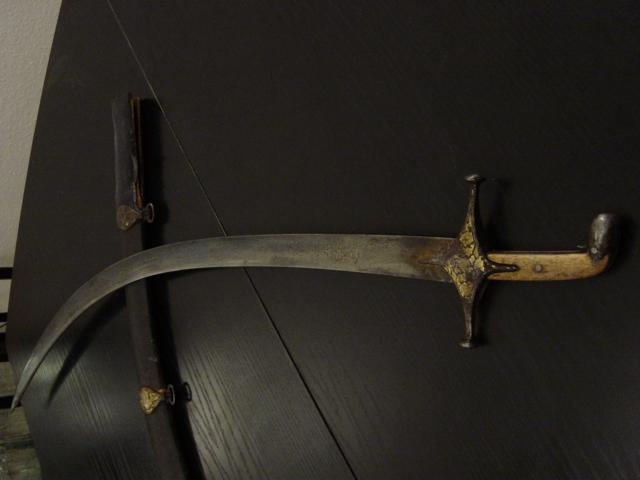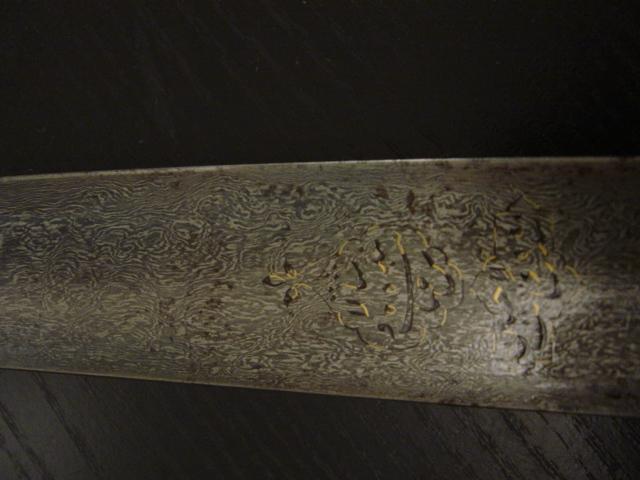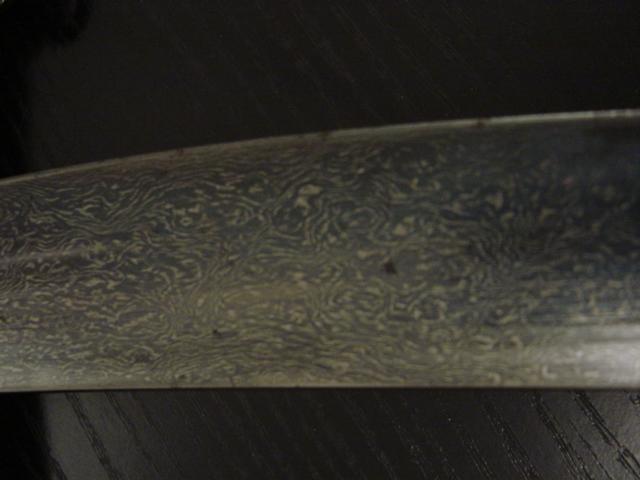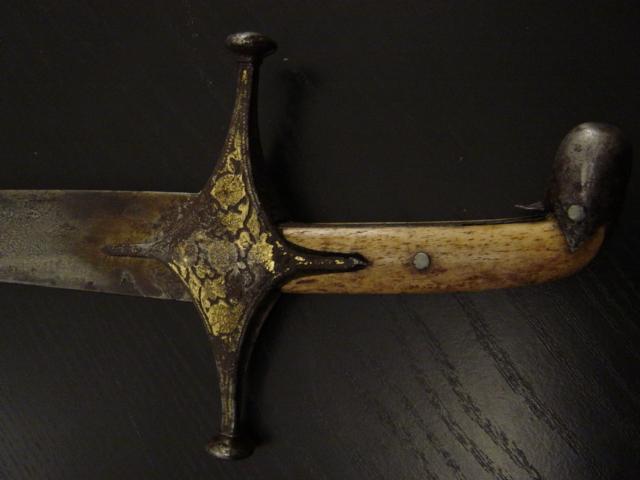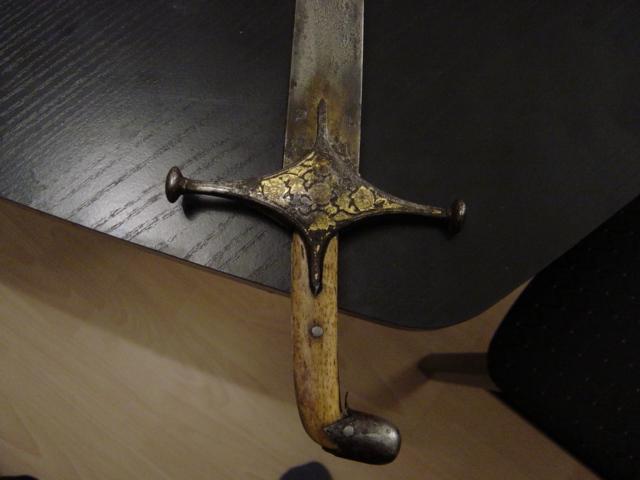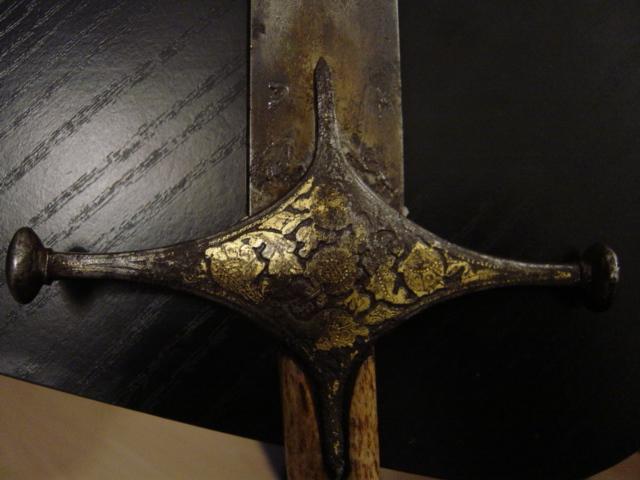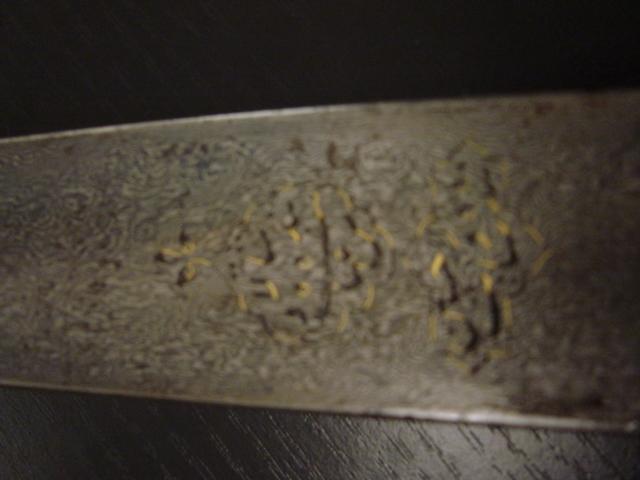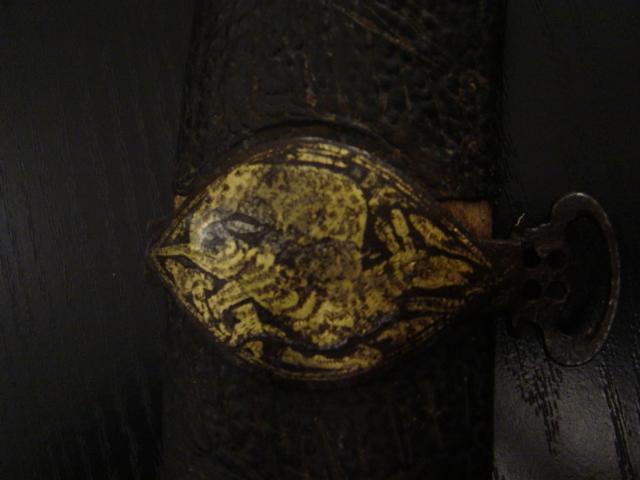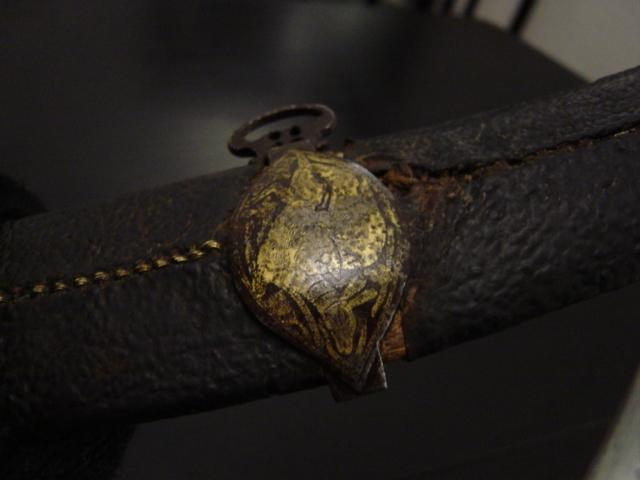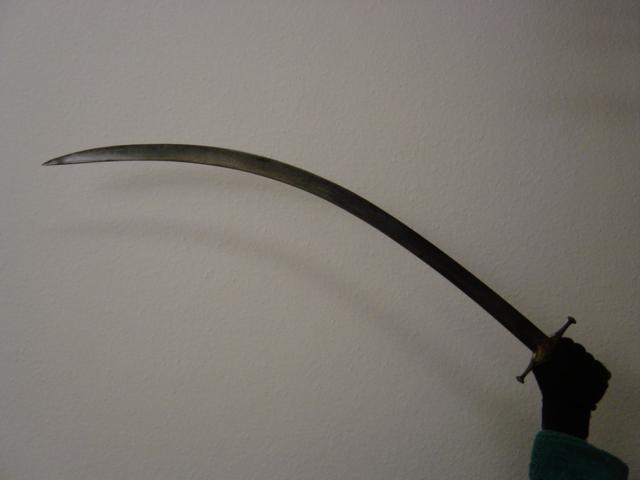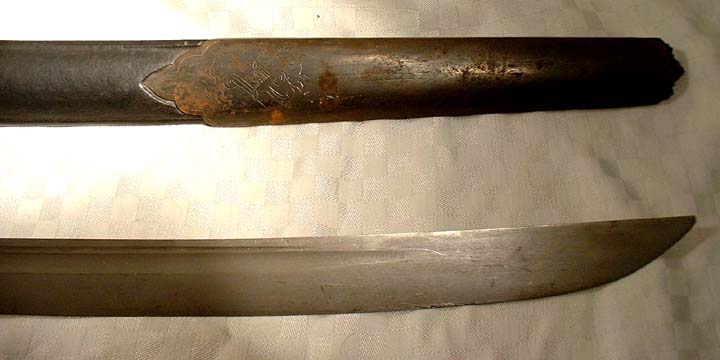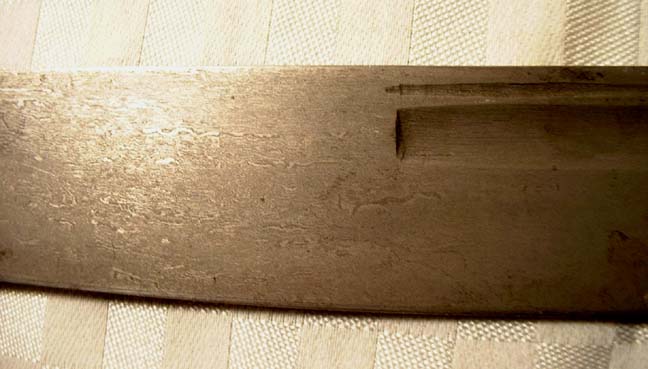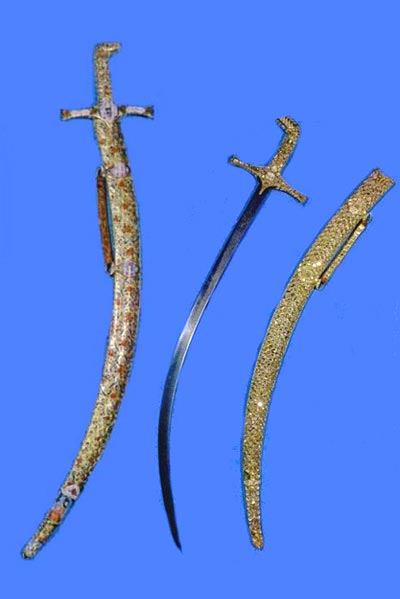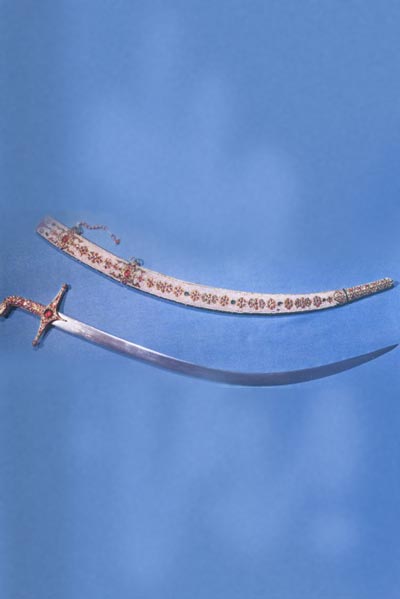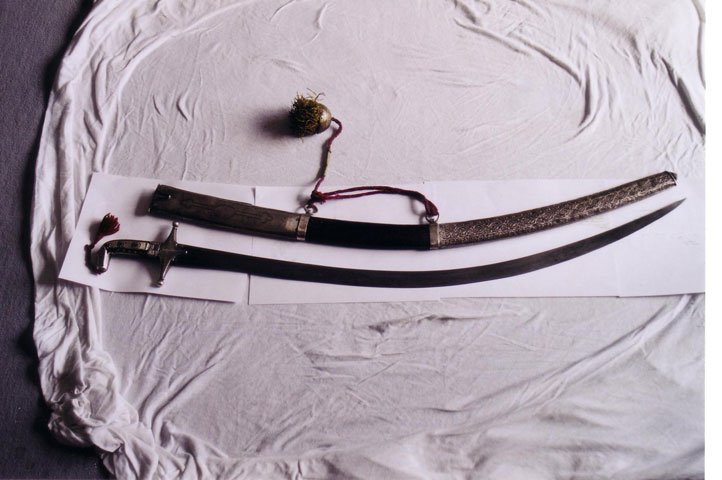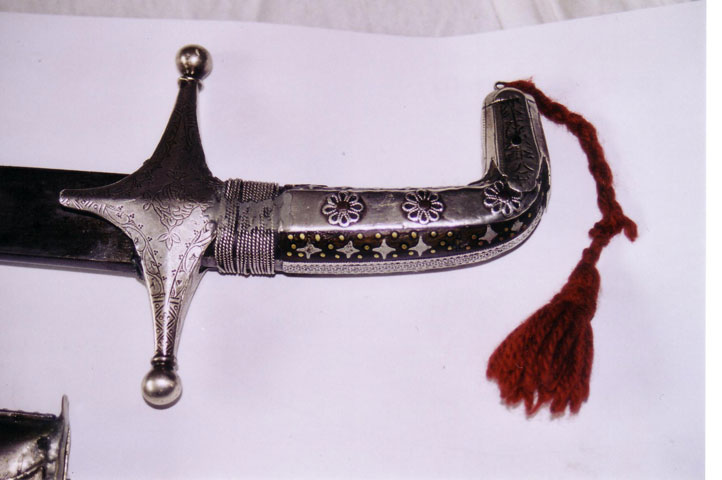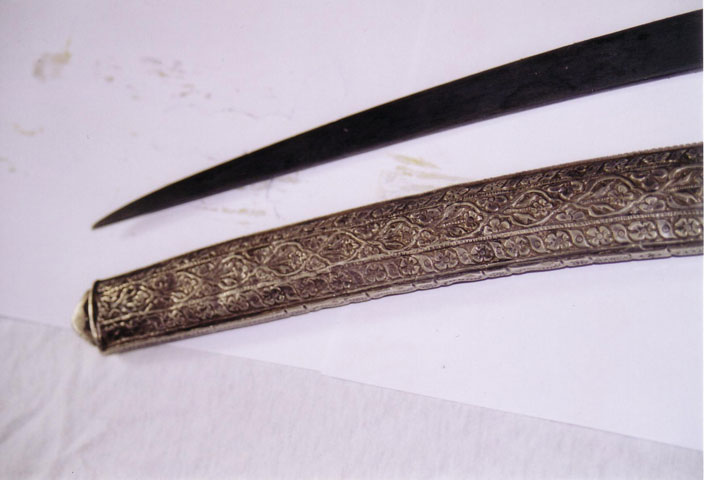Do you have any information on and/or pictures of these early swords, the straight ones? How were they similar to and how did they differ from European Swords of the time?[/quote]
Jamie
They were one handers meaning that they were used in conjunction with the shield. If you go to the site of the Topkapi Saraye Museum, you will see two swords of the Prophet Mohammad. Note that these swords are probably rehilted by the Ottomans:
http://www.ee.bilkent.edu.tr/~history/topkapi.html
Note that the sword above is double edged. The book "Islamic Swords and Swordsmiths" by Dr. Üsal describes them in detail.
The sword above:
- staright, double Edged
- signs of watered balde (damascus)
- length: 82.05 cm
Width: 4,2 cm (near cross guard), 3.7 cm (midpoint); 3.6 cm tapering (near tip)
Length of hilt: 12.9 cm
POB: 22-23 cm (from the cross guard)
Weight minus scabbard: 1.045 kg
- length of scabbard: 83.5
The sword below:
- straight, double edged
- signs of watered balde (damascus)
- length: 87.2 cm
Width: 2,7 cm (near cross guard), 2.3 cm (midpoint); 2.6 cm (near tip) this is a yelman
Length of hilt: 13.8 cm
POB: 21-22 cm (from the cross guard)
Weight minus scabbard: 0.925 kg
By courtesy of Topkapi Saraye Museum
